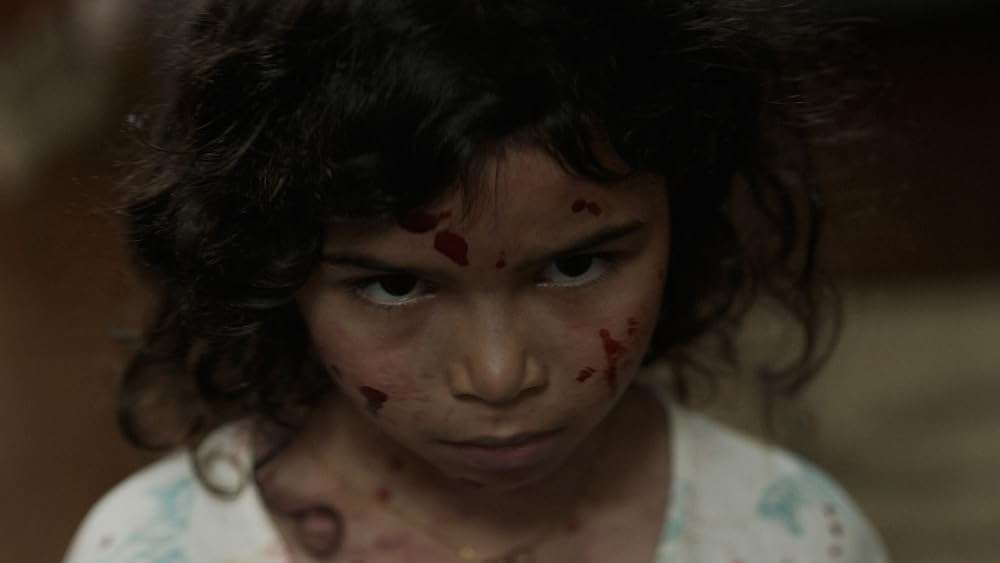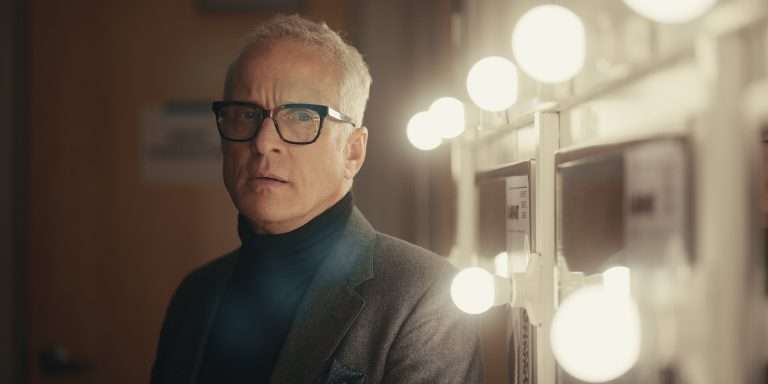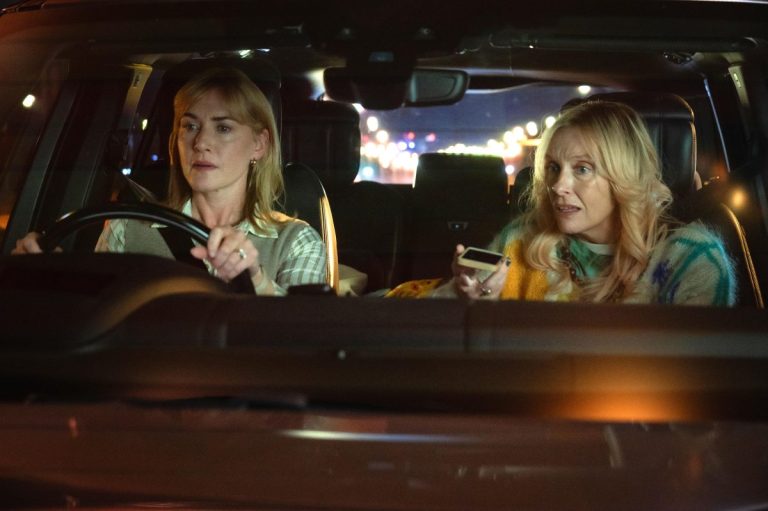Trigger Warning: Gore, Body Horror, Abortion, and Childbirth. In Birth/Rebirth (2023), Dr. Rose (played by Marin Ireland) is a morgue technician who moonlights as a scientist in her apartment, trying to bring the dead to life. On the other hand, Celie (played by Judy Reyes) is a maternity nurse at the same hospital and a single mother to a six-year-old daughter, Lila (played by A. J. Lister). It is when Lila suddenly dies of meningitis that Dr. Rose and Celie move in together – the former fueled by the desire to experiment with a human corpse and the latter to cope with the reality of the extent of her loss – to reincarnate her pale-purple lifeless body; they succeed. However, the cost of this success physically takes a toll on Dr. Rose.
Celie’s professionalism is also put to the test in the face of her personal needs when they start running out of the serum essential for Lila’s borrowed life from running out. Is Dr. Rose successful in blowing a second life into Lila? Directed by Laura Moss and written by Laura Moss and Brendan J. O’Brien, Birth/Rebirth (2023) brings a fascinating conversation around bodies, motherhood, moralities, and the horror of tipping the balance between life and death. It is easily one of the most frightening body horror movies I have watched in a long time!
Back in school, when I read The Monkey’s Paw, a short story by W.W. Jacobs written in 1902, I constantly wondered about the creature who comes back from the dead when Mrs. White makes the second wish. Horror, I have discovered, has a way of making itself feel more noteworthy and real when you leave the readers or an audience curious about it. However, it is the 21st century.
If a creature were to be back from the dead and banging at a house’s door, I am sure one would be able to catch a glimpse of it in the annuls of the internet. Technological advancement is perhaps why horror – the old-fashioned religious exorcism of the demon and creepy, long-haired vengeful ghosts playing hide-and-seek in old mansions – is so difficult to get right today unless you make the technology itself the source of all things terrific. Mary Shelley’s Frankenstein (1818) has, no wonder, found reverberations across literature and pop culture over the last 200+ years.

Here, the shoes of Viktor Frankenstein are filled in by Dr. Rose; while the latter experimented with his knowledge of chemistry to bring a humanoid to life, Dr. Rose is engaged in bringing back the dead to life using serums derived from fetus cells and regular blood transfusion. Both these characters are motivated by grief, personal loss, and curiosity.
Unlike Viktor (who flees in disgust at the sight of the Creature), Dr. Rose takes great pleasure in studying and experimenting with her subjects of reincarnation, trying as hard as she can to engage with them and make her experiments successful. The sheer cruelty of the actions she imposes on her own body and the bodies of her subjects will make your skin crawl in horror.
For instance, I found myself gaping for air at the sight of a weeks-old fetus swimming in some solution inside a beaker, the same fetus Dr. Rose aborted in the preceding scenes. With little scope for outlining her character, the writers have ensured not to stereotype her as a modern-day version of Viktor Frankenstein. She is a scientist who uses her womanhood to further her scientific knowledge and experiments, maintaining a mostly-pallid expression and shrewd objectivity about life, death, and rebirth.
Motherhood is one of the most potent themes in Birth/Rebirth (2023), which seemingly serves as a segue to the larger moral debate at its heart. At one point in the movie, Celie and Dr. Rose take turns caring and watching over the re-born Lila. They are different in their approaches to the child, but both operate from a place of motherly affection. While Dr. Rose treats it as her subject of the experiment, it is like bringing up her child all over again for Celie.
The constant duality between their approaches to the child speaks about how motherhood is essentially unique for every person. Motherhood is also a painfully physical experience, and the film does not shy away from depicting it – from childbirth to abortion – in all its horrors. In fact, the physicality of this human experience serves to evoke horror among its viewers, framed through tight close-ups of the various women and their many expressions as they navigate motherhood.
I am also struck by how carefully the film’s title has been crafted. The forward slash ‘/’ symbol between the words birth and rebirth almost makes it feel like a thought experiment, the Schrodinger’s cat. How you choose to look at reincarnation – the birth of an unknown creature or the rebirth of a human- will define your stance on the movie and whether or not you find Dr. Rose’s experiments morally compelling.
I can’t recall another movie that has arrested my attention as much as Moss’ cold, bloody feature. You should definitely check out Birth/ Rebirth (2023) at the earliest opportunity!






![The Rider Review [2018]: An Intimate and Heartbreaking ride](https://79468c92.delivery.rocketcdn.me/wp-content/uploads/2018/08/the-rider-2018-hof-768x323.png)

